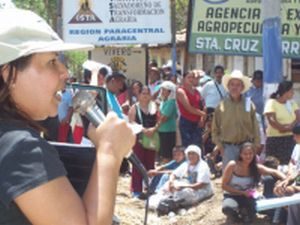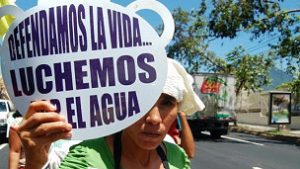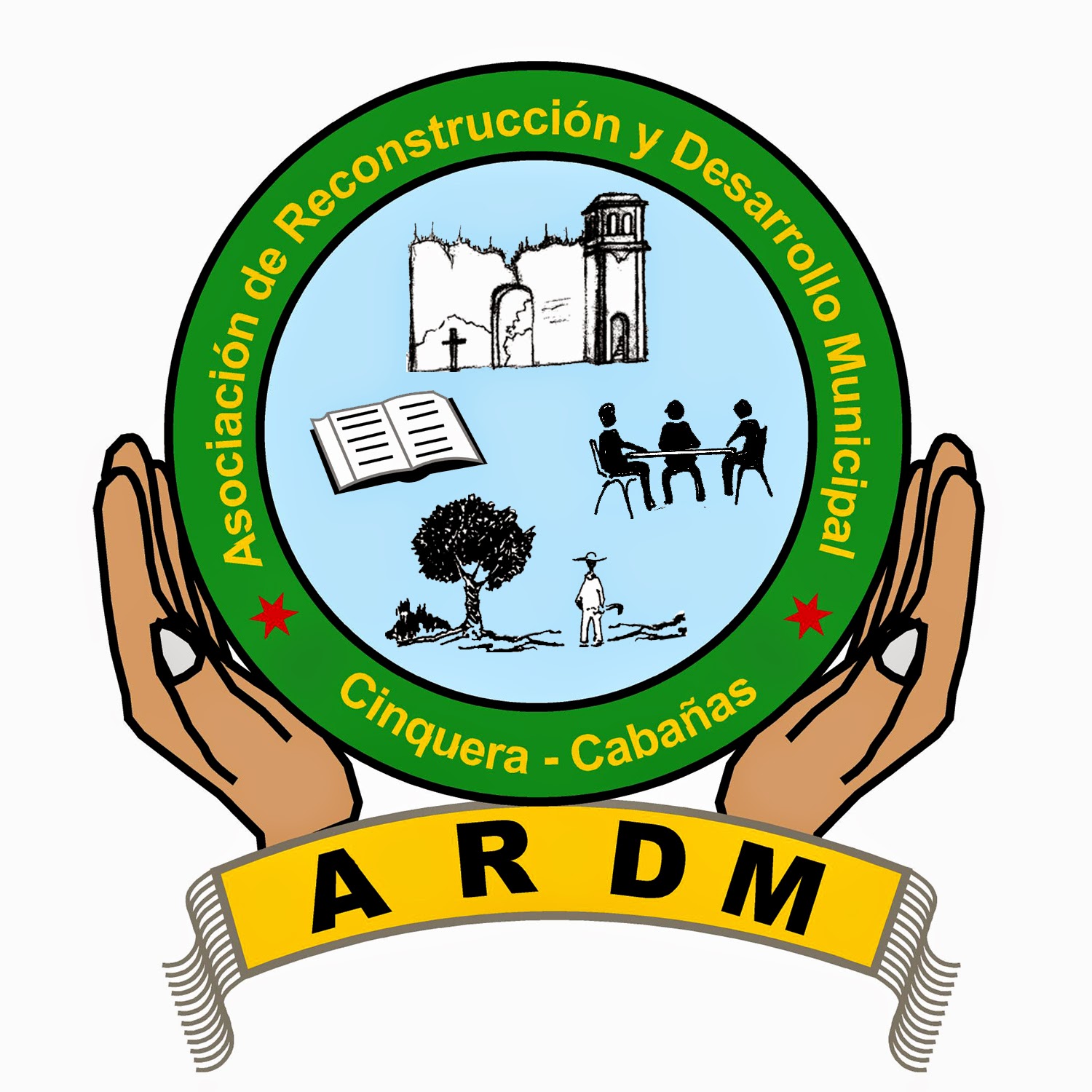Sister Cities
Regional Update: Cinquera – April 27, 2007
April 27, 2007
ARDM-Cinquera Monthly Update #5
Introduction:
This is the fifth in the series of monthly updates on the work of the Association for Reconstruction and Municipal Development (ARDM) and the social, political, economic and cultural panorama in Cinquera. The ARDM, with support from U.S.-El Salvador Sister Cities local staff, has decided to share in this format news about its activities as well as reflections, reactions and analysis. These updates are written first and foremost to share with Cinquera’s Sister City of Chicago, but should also be suitable for general distribution. Information was presented to me in an informal and open style, this time I sat down with Manuel Reynado, the current President of the ARDM board as well as sistering and youth organizer, Augustin Pio Valle, recently elected to the ARDM board, and Lito Rivas, ARDM organizer.
Jesse Kates-Chinoy,
Sister Cities E.S. Staff
Community Organizing:
In the past few weeks the ARDM community organizers have been hard at work! The Community Council of El Tule has been officially recognized and legalized, and Lito is accompanying the newly elected council to create a community work plan that takes into account the needs of the community and coordinates actions between the families and with surrounding communities.
In the community of El Güiliguiste the ARDM continues to support the community through its process of organizational setup and administration of a community drinking water system. With the help of Lito the community had already legalized its Community Council and found financial support for the water project. Now the ARDM is helping to organize the Water Committee in the community, in charge of administering the system, collecting monthly contributions from each family to maintain the system, and pay for the electricity needed to pump water up the hill to their community and into their homes. This work is particularly important, because it facilitates the community control over its water resources. This has become especially important of late. The central government has passed a law decreeing all water resources to be property of the State. At the same time, they have made serious overtures toward privatization of the national water company, ANDA, beginning with a serious smear campaign, highlighting the bureaucratic missteps and massive corruption within the public water system. All of this drives the communities to strengthen their local systems to control, administer, and defend their drinking water.
The ARDM continues with its constant work of accompanying the Community Council organizing in each of the 8 communities of the municipality. This past month the community of San Nicolas held its community-wide assembly to elect a new Community Directive Council, as the then current council’s 2-year term was up. The assembly was able to successfully elect a new council, this time led by a young woman as Presidenta.
Millennium Challenge Account:
Do you remember last month’s update when we talked about the Millennium Challenge Funds? A quick refresher: “The U.S. State Department’s Development aid branch, the Millennium Challenge Account (MCA), approved a 461 million dollar grant to the Government of El Salvador. According to Salvadoran President Tony Saca, this aid will be used in large part to revitalize the economies of the northern part of El Salvador, and more than half of the funds will be destined to build transportation infrastructure, primarily in a superhighway to cut through the northern third of the country, a corridor connecting El Salvador with Guatemala in the West and Honduras in the East
The MCA funds are part of a larger economic plan for Central America, the Inter-American Development Bank’s (IDB) Plan PuebloPanama, a regional free trade industrialization plan which calls for mega highways, new hydroelectric dams and telecommunication privatization, amongst other things. Read a recent article on the MCA written by Sister Cities staff here. Really, check it out.
One important piece of the MCA puzzle is that 60% of the funds are donation, and 40% must be produced locally as a project counterpart. Cinquera is working on analyzing both what political stance they should take on the impact of the MCA counterproposals on their economy, as well as what projects and proposals they should promote as recipients of the MCA funds coming to their part of the country”
Enough of the refresher, and back into reality. In early April the ARDM got a phone call from the representative of the Foreign Relations Ministry, a subset of the Department of the Interior of the Salvadoran government. The representative asked “What is the position of the people of Cinquera on sharing profits with external investors?” When asked to clarify, he would only say that foreign investors were interested in developing Cinquera, and willing to buy out local families. The ARDM made no commitments at the time. A few days later the Ministry of Foreign Relations sent word that they were sending a 32 person delegation of foreign businessmen and potential investors to evaluate the site. The ARDM has decided that it will not share information, facilitate access, or allow the investors to take ownership of the area. Manuel Reynado, ARDM President warned that “we have to be very careful. The government needs investors to make commitments so that they can receive their cut of the Millennium Funds. We want to develop our local and community run tourism, but we cannot let foreigners and rich come in and plunder the resources that we have worked hard to preserve.”
It should be interesting to see how it develops.
Youth Organizing:
The Local Youth Radio Project is on the move, and the initiative is spreading. With a mix of funds generated from the Radio, the Communications Project, and other private donors the ARDM youth program has purchased another set of speakers, amplifiers, microphones and a mixing board to set up a sister Local Radio station in the community of San Nicolas, Municipality of Cinquera. This radio is modelled after the radio in the Cinquera urban center run by the ARDM, which has met with some good success. The San Nicolas youth group is now carrying out a similar process in their own community, beginning with training young people to be “DJs” and producers, as well as a community survey to find out the community taste in music to put together their daily programming.
The young people running the Cinquera radio have been going to trainings on how to create better media spots, and on how to better run the radio equipment. They have been putting together educational mini-programs, on topics such as Water Privatization, Women’s Rights, Corruption and Revolutionary Theory. Pretty cool.
The Cinquera youth music group that the ARDM together with the Mayor’s office has been supporting, is also taking off, as more members learn to play instruments, and within the community promote their own style of peoples, revolutionary and romantic music.
On a political level the youth of Cinquera are coordinating directly and on a provincial level with the FMLN. A youth political organizing brigade, called the “Ché Guevara Brigade” has been formed. The “Ché Guevara Brigade” is in charge of organizing doing political outreach throughout the Province of Cabañas, and is made up of 5 young leaders, including Manuel Reynado from Cinquera. The Brigade travels to different communities around the province, and begins by building trust with local inhabitants; by sweeping the streets, picking up trash, or even cutting down the weeds around the tombstones in the local graveyard. The Brigade is also in charge of coordinating for the Province of Cabañas the “Operación Milagro” or the “Operation: Miracle”. This is a program put together by the Governments of Venezuela and Cuba, and coordinated with the FMLN, to offer free travel and eye surgery for the rural poor from El Salvador to recuperate their vision. Several people from Cinquera have had the opportunity to get this otherwise impossibly expensive medical procedure performed.
Finally, the Regional Youth Committee has been making serious headway in Cinquera and the surrounding municipalities. They have been able to re-activate municipal youth organizing groups in the towns of Tenancingo and Jutiapa. They organized a youth hike through the Cinquera forest to plan organizing strategies for environmental protection. They organized a trip where youth from the 5 municipalities went to the SapoRiver, in the Morazan province, to learn about their environmental preservation initiatives. They organized a regional soccer tournament for the youth teams from the communities, and finally a “Youth Expression Contest”, in which young people from all of the municipalities created art, theatre, dance, etc. around the theme.
Projects:
The ARDM continues to look for more support to build its butterfly garden as a local tourist attraction, specifically to begin the phase of construction and planting of the butterfly-friendly vegetation, as well as egg collection.
Meanwhile, they have begun to receive funds from several Spanish and Basque municipalities to continue buying land within the forest, working toward their goal of having sole ownership of the minimum amount of land to declare the area nationally protected. (Salvadoran law does not permit national protection status to an area with different owners, especially not the 100 or so private owners of the CinqueraForest that stretches over 5 municipalities. With the recent donation of 22,000 dollars, the ARDM hopes to be able to inch a little closer to their goal.
Also, the ARDM has submitted proposals for a project to protect the high watershed of the PasoHondoRiver, which runs through the forest, into the tourist area of the park, and finally drains into the SuchitlánLake. The project involves education to the inhabitants in the high watershed, as well as intensive riverside reforestation.
European Union Micro-Region Project:
The Micro-Regional environmental project, funded by the European Union is currently in the stage of working on solid waste treatment in 2 municipalities.
As well in Cinquera as a part of the project the ARDM is coordinating the purchase of native seed for the agricultural producers in the area. This is a product of the Native Seed Swap organized late last year, and the seeds will be purchased from local and national native seed producers, as a continuing alternative to buying expensive, genetically modified seed from the big agro company, “coincidentally” owned by ex-president of El Salvador, Alfredo Cristiani.
The 5 municipalities of the micro-region (Suchitoto, Cinquera, Tenancingo, Tejutepeque and Jutiapa) have come together to throw their political and social weight behind an advocacy initiative in Tejutepeque: The inhabitants of Tejutepeque pay inflated water bills, but most of the time have no running water in their homes because of faulty pipes, poor pressure, or a host of other failures of the National Water System, ANDA. In addition to pressuring ANDA to fix problems for the rural population and change the billing system, the organizers also see the situation as a part of the campaign to privatize the water system (as described above), and held a public forum in Tejutepeque to demand a solution to the water problem, but also do public outreach and education about the issues at hand, and shout a resounding “no!” to water privatization.
Historical Memory and Political Advocacy:
Other political advocacy events coming up for Cinquera include this May 1st, International Workers’ Day. Activities include a massive march into San Salvador, for which the ARDM plans to move a busload of people from the municipality. (Editor’s Note: the May 1 march was a big success, snaking through San Salvador with an estimated nearly 70,000 people. The march was so long that the when first marchers had reached the public square where they would have their final concentration, the end of the march had yet to leave from its beginning point.
Finally, this Saturday, May 5, the ARDM and the inhabitants of Cinquera are going to hold their annual commemoration of the “Caídos de Cinquera,” all those people from Cinquera who were killed during the war, either as guerrilla combatants or civilian population. Events include a vigil, testimony, music, speeches, and a space for the community to come together to remember, celebrate, and keep their historical memory present and alive.



